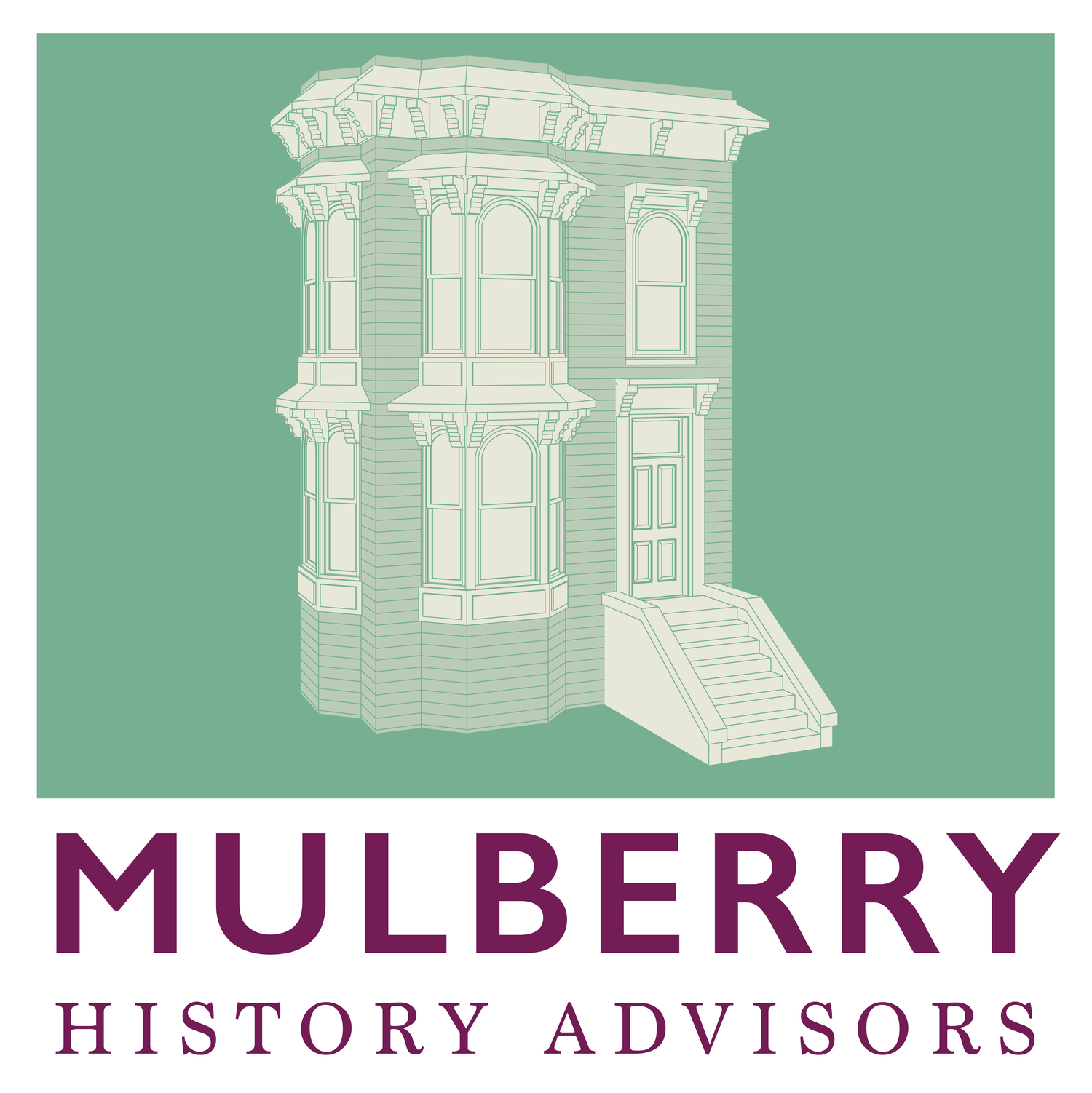
Ensuring stakeholders can influence federal activities that affect historic properties.
Mulberry History Advisors’ Jacqueline Drayer on the importance of Section 106 participation.
Local stakeholders are entitled to comment on federal activities. Exercising this right is critical to historic preservation.
Every federal agency is required to consult with interested parties when its activities may affect historic properties. This process is known as Section 106 of the National Historic Preservation Act. Local governments, tribal governments, nonprofits, and the public are increasingly asked to comment on Section 106 activities.
Consultation may proceed rapidly. Parties new to Section 106 consultation may be unsure of how to respond. Experienced parties may struggle to comment due to the volume of submissions. Lack of local stakeholder participation exposes historic properties to potentially adverse effects.
We level the playing field for stakeholders.
Local governments, tribal governments, nonprofits, neighborhood associations, and members of the public may become consulting parties under Section 106. This entitles them to review submissions, comment, and attend meetings. Tribes have additional rights. When none of these stakeholders participate in Section 106, the undertaking advances without local input, potentially putting historic properties at risk.
Federal agencies and applicants for federal licenses hire consultants to support them in the process. Local stakeholders can benefit from expert advice too. Until now, no such service has been widely offered.
We provide expertise gleaned from prior work with all parties involved in the Section 106 process. We have facilitated Section 106 consultation on behalf of the Federal Railroad Administration, the Federal Emergency Management Agency, and Federal Communications Commission applicants. We advised the Department of Defense and Department of Housing and Urban Development lenders on Section 106 compliance. We have represented municipalities and nonprofits on undertakings initiated by more than half a dozen federal agencies. We have also advised state agencies and local governments accepting delegations of authority from federal agencies. Information about clients we recently advised and represented in Section 106 consultation is available here.
What is Section 106?
The National Historic Preservation Act is the federal legislation that preserves and protects historic properties in the United States. Its Section 106 requires all federal agencies to consider the effects their undertakings — activities they carry out, assist, fund, license, approve, or permit — may have on historic properties. An important goal of Section 106 is to avoid or mitigate adverse effects on these properties. Learn more about the process in our Primer on Section 106 Response video or transcript.
Why should local stakeholders respond to Section 106 activity notifications?
Federal agencies are responsible for seeking public input into how their activities may affect historic properties. They do this by asking local stakeholders for input. Stakeholders review proposals, alert the agency to potential impacts on historic properties, and recommend how to avoid or mitigate adverse effects. Without their response, important architectural, archaeological, and landscape features may be compromised or lost.
Do you advise on projects initiated by various federal agencies?
Yes. We have worked on undertakings initiated by the Department of Defense, Department of Housing and Urban Development, Environmental Protection Agency, Federal Emergency Management Agency, Federal Highway Administration, Federal Railroad Administration, National Park Service, Smithsonian Institution, Treasury Department, U.S. Army Corps of Engineers, Federal Communications Commission, and Federal Reserve.
Advising
We proudly serve government, nonprofit, and other interested parties nationwide through:
Section 106 Response Training
For novice stakeholders we provide an overview of the Section 106 process, strategies for impactful consultation, and answer questions about agencies.
For experienced stakeholders we focus on improving consultation outcomes and increasing review capacity.
Undertaking Advising
Consultation guidance and mitigation strategy for one or more specific projects.
Responsible Entity Advising
Guidance for local, tribal, and state governments or private companies accepting delegation of Section 106 responsibilities from a federal agency.
What Our Clients Say

Case Study: Federal Reserve Board Redevelopment
Representing a Historic Preservation Nonprofit
Our Founder and Principal represented DC Preservation League as an employee in Section 106 consultation regarding the Federal Reserve Board’s redevelopment of the historic Marriner S. Eccles and Federal Reserve Board East buildings.
From initial notification through February 2020, she reviewed proposals, made recommendations for avoiding and minimizing adverse effects, coordinated with other consulting parties, and delivered testimony.
Read her comments, submitted in writing and delivered live before the National Capital Planning Commission. Many of these recommendations for the design of new construction, Area of Potential Effects delineation, and use of renderings were adopted, as seen in meeting records.



